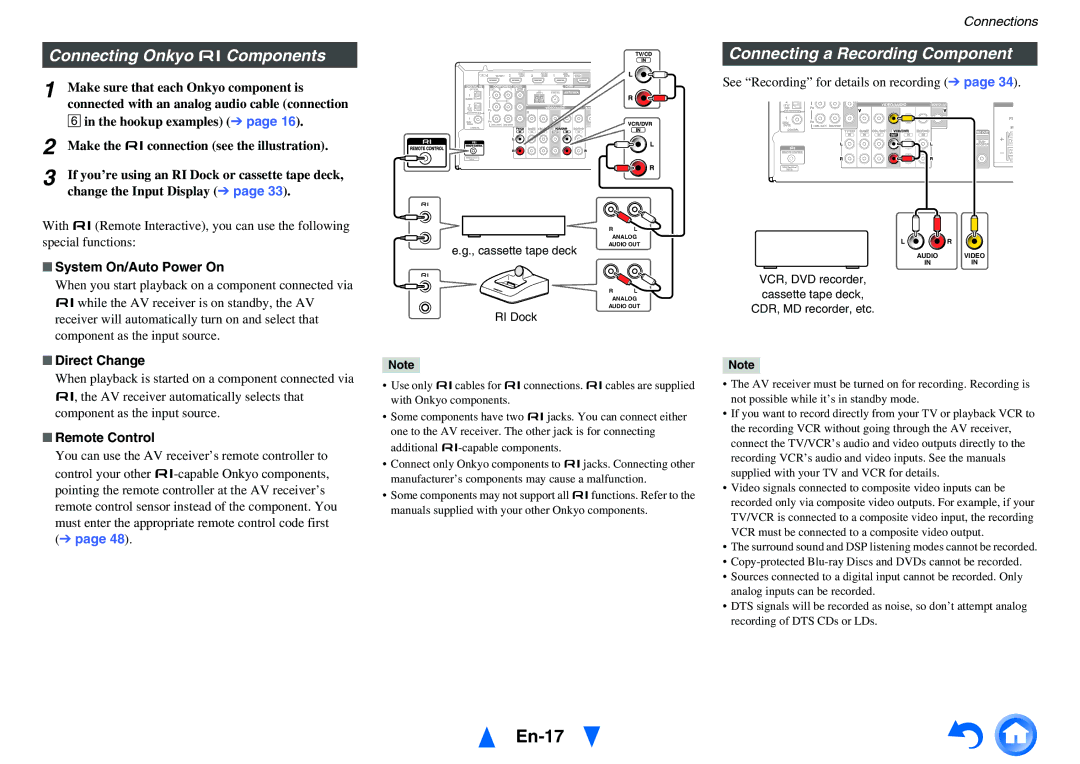
Connecting Onkyo uComponents
1 Make sure that each Onkyo component is connected with an analog audio cable (connection
Fin the hookup examples) (➔ page 16).
2 | Make the uconnection (see the illustration). |
3 | If you’re using an RI Dock or cassette tape deck, |
| change the Input Display (➔ page 33). |
With u(Remote Interactive), you can use the following special functions:
■ System On/Auto Power On |
When you start playback on a component connected via |
uwhile the AV receiver is on standby, the AV |
receiver will automatically turn on and select that |
component as the input source. |
■ Direct Change |
When playback is started on a component connected via |
e.g., cassette tape deck
RI Dock
Note
R L ANALOG AUDIO OUT
R L ANALOG AUDIO OUT
Connections
Connecting a Recording Component
See “Recording” for details on recording (➔ page 34).
L ![]()
![]() R
R
AUDIO | VIDEO |
IN | IN |
VCR, DVD recorder, cassette tape deck, CDR, MD recorder, etc.
Note
u, the AV receiver automatically selects that |
component as the input source. |
■ Remote Control |
You can use the AV receiver’s remote controller to |
control your other |
pointing the remote controller at the AV receiver’s |
remote control sensor instead of the component. You |
must enter the appropriate remote control code first |
(➔ page 48). |
•Use only ucables for uconnections. ucables are supplied with Onkyo components.
•Some components have two ujacks. You can connect either one to the AV receiver. The other jack is for connecting additional
•Connect only Onkyo components to ujacks. Connecting other manufacturer’s components may cause a malfunction.
•Some components may not support all ufunctions. Refer to the manuals supplied with your other Onkyo components.
•The AV receiver must be turned on for recording. Recording is not possible while it’s in standby mode.
•If you want to record directly from your TV or playback VCR to the recording VCR without going through the AV receiver, connect the TV/VCR’s audio and video outputs directly to the recording VCR’s audio and video inputs. See the manuals supplied with your TV and VCR for details.
•Video signals connected to composite video inputs can be recorded only via composite video outputs. For example, if your TV/VCR is connected to a composite video input, the recording VCR must be connected to a composite video output.
•The surround sound and DSP listening modes cannot be recorded.
•
•Sources connected to a digital input cannot be recorded. Only analog inputs can be recorded.
•DTS signals will be recorded as noise, so don’t attempt analog recording of DTS CDs or LDs.
